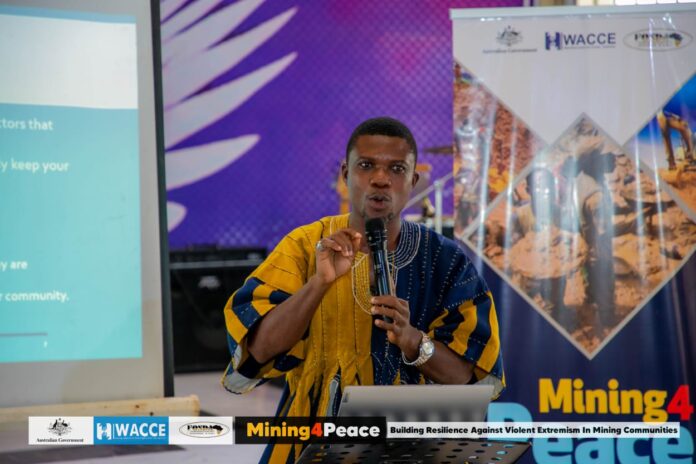The clamour for Security sector reforms across Africa is hinged on the core of civil military relations. Civil – military relations refer to the web of relations between the military and the society within which it operates. Such relations embody all aspects of the role of the military as a professional, political, social and economic institution in the entire gambit of natural life.
Civil/military relations encompass issues of the attitude of the military towards the civilian society and the civilian society’s outlook of, and attitudes towards the military, and the role of armed forces in relation to the state. This relationship is approximate to one of mutual reinforcement just as the military is seen as a reflection of the larger society.
However, the civilian sector is affected by the policies, actions and activities of the military particularly when the military has had a prolonged direct rule. Comparatively, the military and the larger society affect each other through a dynamic and complex web of sociocultural, economic, political linkages.
What has been the posture of Africa’s military? The immediate post colonial era in most Africa countries featured military institutions which were virtually clones of their colonel masters and this remained within the confines of their constitutional roles. Perhaps, the only thing that changed was the colour of the skin of those who are in the helm of affairs.
The 1960s and 1970s saw a lot of military takeovers due to the inability of the civilian elite to meet the challenges and contradictions of the post-colonial state, coupled with the inbuilt domineering character and attitudes of the military justifying their regime actions as corrective revolution and patriotism. The Africa military must evolve constitutionally and ideologically rather than existing only geographically with colonial structures.
The concept of civil military relations is Avery complex phenomena in Africa, leading non-state actors to push for security sector reforms. The relationship that exists currently between the military and civilians in Africa is highly toxic to a point where no clarity can be espoused as to whether we have a people’s army or people as servants of the army. This is so because there is a disjuncture between the military that liberated Africans from the military that is party to government autocratic bureaucracies.
During the liberation struggle, the armies were the toast of the people but are now instruments of oppression and rights denial as we have witnessed in recent times in Ghana just like many other Africa countries where they unleash their venom at the least provocation by their civilian counterpart. It is believed that this phenomenon can radicalize citizens to vehemently stand against their armies in solidarity of their rights which will be grounds for uncontrollable disaster in the near future given the many economic challenges and bad governance in Africa.
The idea that many post colonial armies are a replica of the past colonial regime where some major army cantonment bear colonial names and also the Defence Acts and some constitution across Africa serve former colonial regimes than African interest is fertile ground for bad relations akin to their present attitudes. Poor civil military relations may result in citizens supporting non-state actors to liberate themselves from despotic tendencies emanating from poor civil military relations in Ghana.
Though the Ghanaian community had a cordial relationship with its military, excessive use of the military for civil matters and brutal handling of civilians by the military is eroding that cordiality and making the average Ghanaian more radicalized. There is a proliferation of non-traditional threats (corruption, smuggling, trafficking, terrorism, gangsterism, xenophobic tendencies, ethnic simmering, religious clashes state brutalities etc).
These threats have serious negative effects on both the state and human security and without a strong military relations the civilian population will continue to harbour infidels and armed themselves to attack when necessary. This soiled relationship can equally affect security intelligence as citizens will see the military as ‘them against us’ and unwilling to disclose information for better security sector governance decision making. There is the need for the military to reorient personnel with current trends of democratic principles domesticating the responsibility to protect (R 2 P ) doctrine, where the military safeguards the human security concerns of the people.
The basis for this trajectory is that, African solution for African challenges where the respect for traditions, culture and values must be the focal importance of building a responsible military. The European template where the military is supposed to be confined to the barracks is unworkable in Africa. Rather, the military must play an active role towards human security obligations under the tenet of ‘responsibility to protect’.
Conclusively, the military is a key factor in our democracy in Africa and must accept reforms so that they remain relevant to the general populace. The idea of grab, maintain, and expand power by Africa leaders, and therefore, Africa leaders procure military hardware in order to fight their own citizens is a tragic undertaking.
Suffice to note, the military in Europe is an important institution in terms of economic and technological developments. But sad to note, in Africa, the military usually improve civil military relations only if the rwlarionship would be beneficial to them. In China for example, the best hospitals are military hospitals but the opposite is true in Africa.
But sad to note that, European military hardware markets are Africa and Asian because leaders use their armies to protect political power and not development. In light of these factors, security sector reforms and decolonisation of the colonial military legacy is inevitable.
Writer: Nana Dr Sadiq Adu-Twum, (Executive Director, Centre for Security, Media and Governance Studies, Africa)/Lecturer@Pentecost University ( Department of Communication Studies).
Email: sssadiqadutwum@gmail.com




